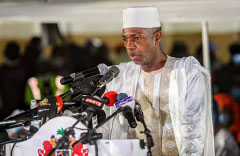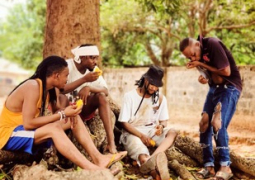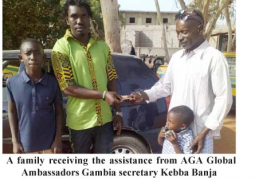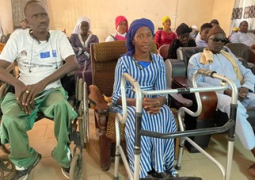
Amat N.K. Bah was speaking on Wednesday at a presser organised by the Ministry of Information on government’s latest developments, initiatives and policies taking place in the various ministries. The briefing was held at the Sir Dawda Kairaba Jawara Conference Centre.
Minister Bah argued that there is a pressing need to modernise and streamline procedures to enhance efficiency and responsiveness.
He observed that the deficiency in cadastral mapping further compounds challenges, as accurate and up-to-date cadastral maps are essential for delineating property boundaries, facilitating land transactions, and ensuring equitable land distribution.
However, he said, that his ministry has initiatives to address the challenges which include formulation of an integrated National Land Policy, noting that President Adama Barrow and his government is committed to land sector reforms.
The World Bank support and the Ministry of Lands, he added, are formulating the first-ever integrated National Land Policy.
“Beside the people, the greatest natural resource of the country is the land which is finite while there is growing demand for it for several uses. In this direction, the Ministry of Lands, Regional Government and Religious Affairs has recently received support from the World Bank to formulate the first ever integrated National Land Policy.” he told journalists.
Also, he disclosed that the Policy formulation has begun and currently two consultants (national and international) are already employed to support the process with the Ministry and other national stakeholders.
The lands minister explained that a road map leading to the finalisation of the policy has been developed with participation of all national stakeholders and all the multispectral technical committees are formed and have already begun their work.
The four thematic working groups, he said, have also commenced producing their inputs as per given guidelines.
“That the Formulation process will be guided by an intensive participatory process involving all stakeholders- ‘leaving nobody behind’ bearing in mind the diversity of land sector actors.”
He added that the consultation plan has already been prepared which involve central, district, and sectoral levels and that consultation will be done with special groups such as women, youths, people living with disability, private sector, NGOs/CSOs, National Assembly select committee on Land matters.
He said that the policy formulation involves extensive stakeholder participation and focuses on formulating an inclusive and gender-sensitive national land policy, conducting systematic demarcation and land registration, establishing a digital land information system likewise formulating a National Land Use Plan.
Bah also talked about the need to establish mechanisms to standardise land management processes and procedures at regional and national levels which include capacity building initiatives, regulation of real estates.




